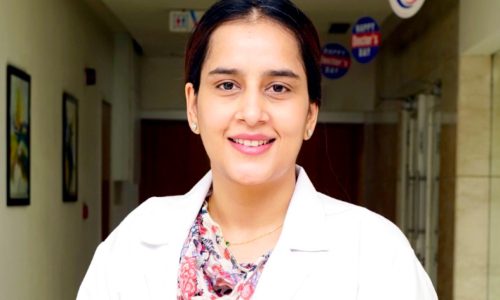
If your symptoms seem to coincide with mental health issues alongside faulty neural functioning, it is advisable that you visit the best neuropsychiatrist in Delhi. Anvaya Healthcare proudly boasts one of the finest teams of top neuropsychiatrists in Delhi who focus on the interplay between the mind and brain for diagnosis and treatment.
Mental health issues are often caused or made worse by neuro-psychological factors, and our expert team understands how to tackle these challenges. Memory failure, changes in behavior, confusion, and whims without any apparent reason traceable via personality are and could also be frighteningly telling of your brain functioning. If you have emotional difficulties like feeling sad, and low alongside suffering from concentration or decision-making problems, those could suggest the presence of a disorder that is both neurological and psychiatric.
Mood changes and even deep-rooted chronic pain can at times, and in strict circumstances, be the result of neurological issues. The good thing is that engaging the services of a neuropsychiatric doctor in Delhi tackles the two sides, mental health and body health, at once, which results in a better treatment approach. Our best neuropsychiatrists in New Delhi provide comprehensive care tailored to your unique needs, combining the best of psychiatric and neurological expertise.

₹2,500/- for 15-20 Mins

₹1,200/- for 15-20 Mins

₹1,500/- for 30 mins

₹2,000/- for 15-20 Mins

₹2,000/- for 15-20 Mins

₹1,500/- for 15-20 Mins
A condition is Neuropsychiatry and it integrates features from both neurology and psychosurgery. It focuses on how the mind and brain work together to form psychosomatic diseases, which includes: head injuries, hereditary factors, infections, tumors, and nutritive deficiencies that affect the functioning of one’s brain, i.e., mental health. Neuropsychiatry looks at diseases that have some form of psychiatric illness (like schizophrenia or some form of depression) with neuroanatomical disorders (like epilepsy, Parkinson’s disease, or dementia).
Neuropsychiatrists have diagnostic and management responsibility for conditions where psychiatric and neurological signs coexist. Their responsibilities include:
A neuropsychiatrist is a medical professional who combines expertise in both neurology and psychiatry. While a psychiatrist focuses primarily on mental health conditions and their treatment through medications and therapies, a neuropsychiatrist specializes in disorders where neurological and psychiatric symptoms overlap, such as neurodegenerative diseases, brain injuries, and cognitive disorders. Whether one is "better" depends on the condition being treated. For general mental health concerns, a psychiatrist may be the best choice, but if there are underlying neurological issues, a neuropsychiatrist may be more appropriate.
A neurologist is a medical doctor who specializes in diagnosing and treating neurological disorders, such as epilepsy, stroke, and Parkinson's disease, which involve the nervous system. A neuropsychiatrist, on the other hand, focuses on disorders where there is an interaction between the brain’s physical structure (neurology) and the mind or behavior (psychiatry). Neuropsychiatrists are trained to treat conditions that manifest both physically and mentally, such as Alzheimer's disease or traumatic brain injuries, where psychiatric symptoms arise from neurological damage.
The fees of a neuropsychiatrist in Delhi can vary depending on factors such as their experience, reputation, the complexity of the consultation, and the specific clinic or hospital. On average, the consultation fees can range from INR 3,000 to INR 4,500. However, for specialized treatments or ongoing care, the cost may increase. It is advisable to inquire directly with the clinic or healthcare provider for more accurate pricing.
Neuropsychiatric symptoms refer to a range of behavioral, cognitive, and emotional changes that occur due to a disorder affecting the brain or nervous system. Common symptoms may include memory loss, confusion, difficulty concentrating, mood swings, hallucinations, delusions, anxiety, and changes in personality. These symptoms can be indicative of underlying conditions such as dementia, traumatic brain injuries, epilepsy, or other neurological disorders that affect mental health.
You should consider seeing a neuropsychiatrist if you or someone you know is experiencing symptoms that involve both psychiatric and neurological aspects. This includes issues such as significant memory problems, cognitive decline, mood swings, hallucinations, or personality changes that may be related to a brain injury, neurodegenerative disease, or other neurological conditions. A neuropsychiatrist is best equipped to diagnose and treat these complex disorders where the mental state is influenced by physical changes in the brain.
Anvaya Healthcare stands out for its multidisciplinary approach to neuropsychiatry. With a team of highly experienced neuropsychiatrists, neurologists, and psychologists, Anvaya Healthcare provides comprehensive care for conditions that impact both the brain and mental health. The clinic offers personalized treatment plans tailored to the unique needs of each patient, combining advanced medical techniques with compassionate care. Patients can expect a holistic approach, access to cutting-edge diagnostic tools, and a supportive environment focused on recovery and well-being.
Second floor, Plot No 28,
Sector-12A Rd, Block A,
Sector 12 Dwarka
Call Now: +91-9810659825
Ground Floor, Plot No. - E-7/5, Block E,
Vasant Vihar, Delhi
Call Now: +91-9650277301

1 in every 5 individuals
suffers from some form of mental health illness

